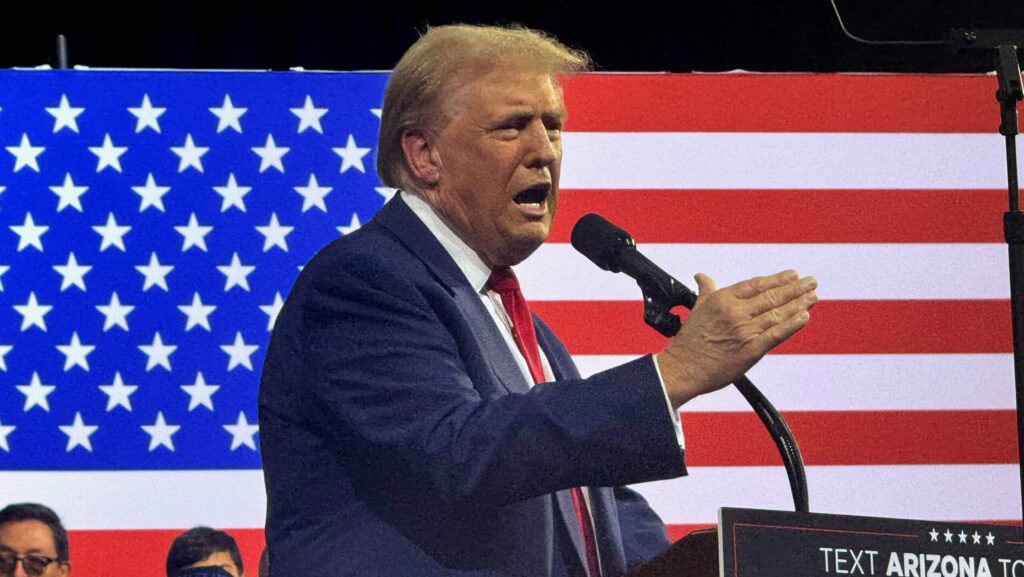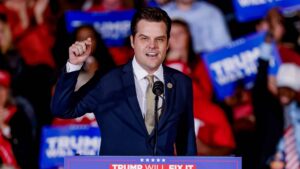The opportunity for a final presidential debate between former President Donald Trump and Vice President Kamala Harris is rapidly diminishing as the election approaches. CNN has formally offered to host a debate on October 23 in Atlanta, a proposal that Harris has eagerly accepted. However, Trump has declined the invitation, raising questions about the potential for this critical face-off.
On Tuesday, CNN intensified its efforts by reaching out to both campaigns, establishing a deadline for a formal response. The network stated that without timely communication from both candidates, organizing the debate could become unfeasible. “With less than 30 days to Election Day, we are placing a deadline for a formal response from both campaigns for this Thursday, October 10, at 12 p.m. ET to participate,” CNN said in a statement.
Traditionally, U.S. presidential candidates engage in multiple televised debates, providing voters with a chance to assess their platforms and personalities side by side. However, this election cycle has defied norms, particularly after President Joe Biden withdrew from the race shortly after the first CNN-sponsored debate in June.
Harris has attempted to leverage her performance in the ABC-sponsored debate held in September to propel her campaign. Immediately following that debate, she challenged Trump to a rematch. CNN responded by proposing the October 23 debate at its Atlanta headquarters, a site familiar to voters from previous debates, including one between Trump and Biden.
The Harris campaign quickly embraced the debate invitation, asserting that “Trump should have no problem agreeing” since the proposed format and setup mirror those of the June debate, which he attended and later praised for its moderators, rules, and ratings.
In stark contrast, Trump dismissed the invitation, labeling it as “too late” for a second debate. His assertion contradicts the typical timeline for final debates in previous election cycles, which often occur in a similar timeframe.
Last week, the Harris campaign reiterated that she is prepared to participate in the Atlanta debate on October 23, urging Trump to “step up and face the voters.” Trump’s response, communicated via Truth Social, was dismissive: “I beat Biden, I then beat her, and I’m not looking to do it again, too far down the line.”
ADVERTISEMENT
Following the dispatch of CNN’s deadline letter on Tuesday, Harris spokesman Brian Fallon reiterated her readiness to participate in the October 23 debate, should Trump agree. “Trump has ducked 60 Minutes and debates, and refused to release medical records in the campaign’s closing weeks,” Fallon remarked, adding that the former president’s recent speeches suggest he is becoming “less and less stable.”
The dynamic surrounding the potential debate has implications beyond just the candidates; it speaks to the current state of American politics, characterized by heightened polarization and the challenges of engaging voters. With the election less than a month away, the lack of a debate could hinder voters’ ability to make informed choices.
As the clock ticks down to Election Day, the role of televised debates has come under scrutiny. Historically, these debates have served as pivotal moments in campaigns, influencing public perception and swaying undecided voters. This year, the absence of a second debate could limit the opportunities for voters to evaluate the candidates in a direct, confrontational setting.
Harris’s campaign strategy appears to be focused on portraying Trump as evasive and unaccountable, emphasizing the need for transparency and engagement in the final stretch of the campaign. In contrast, Trump’s campaign seems to rely on his past performances and public persona to maintain voter support.
As the Thursday deadline approaches, all eyes will be on both campaigns to see if a compromise can be reached that allows for this critical debate to take place. The implications of this debate extend far beyond the candidates themselves; they are emblematic of the broader electoral landscape and the challenges of communication in modern politics.









